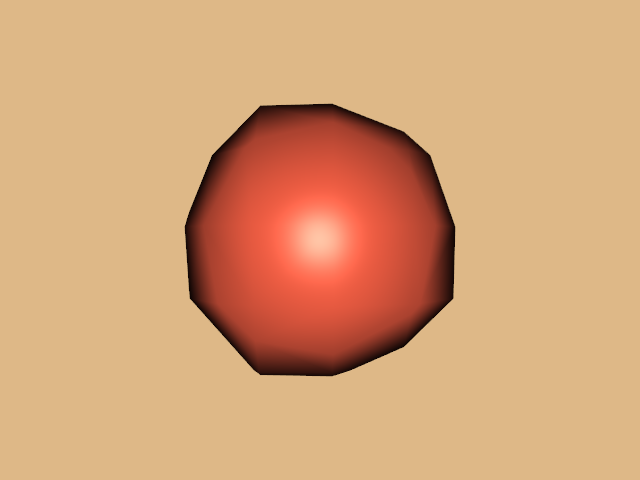SurfaceFromUnorganizedPointsWithPostProc
Repository source: SurfaceFromUnorganizedPointsWithPostProc
Description¶
This example is an extension to the example previously posted at: Create a surface from Unorganized Points
The objective is again to use vtkSurfaceReconstructionFilter to construct a surface from a set of points. However, the direct output of the vtkSurfaceReconstructionFilter does not match with the spatial position of the original point set. Instead, there is a scale change and translation in between. To cure this, in this example we added a post transformation to move the reconstructed surface back to the position of the original points, which in some cases might be more favorable.
Question
If you have a question about this example, please use the VTK Discourse Forum
Code¶
SurfaceFromUnorganizedPointsWithPostProc.cxx
#include <cmath>
#include <vtkCamera.h>
#include <vtkContourFilter.h>
#include <vtkNamedColors.h>
#include <vtkNew.h>
#include <vtkPolyData.h>
#include <vtkPolyDataMapper.h>
#include <vtkProperty.h>
#include <vtkRenderWindow.h>
#include <vtkRenderWindowInteractor.h>
#include <vtkRenderer.h>
#include <vtkReverseSense.h>
#include <vtkSmartPointer.h>
#include <vtkSphereSource.h>
#include <vtkSurfaceReconstructionFilter.h>
#include <vtkTransform.h>
#include <vtkTransformPolyDataFilter.h>
#include <vtkXMLPolyDataReader.h>
namespace {
static vtkSmartPointer<vtkPolyData>
transform_back(vtkSmartPointer<vtkPoints> pt, vtkSmartPointer<vtkPolyData> pd);
}
int main(int argc, char* argv[])
{
vtkNew<vtkNamedColors> namedColors;
auto input = vtkSmartPointer<vtkPolyData>::New();
if (argc > 1)
{
vtkNew<vtkXMLPolyDataReader> reader;
reader->SetFileName(argv[1]);
reader->Update();
input = reader->GetOutput();
}
if (argc == 1)
{
vtkNew<vtkSphereSource> sphereSource;
sphereSource->Update();
input = sphereSource->GetOutput();
}
// Read some points
// vtkNew<vtkPoints points;
vtkNew<vtkPolyData> polydata;
polydata->SetPoints(input->GetPoints());
// Construct the surface and create isosurface.
vtkNew<vtkSurfaceReconstructionFilter> surf;
surf->SetInputData(polydata);
vtkNew<vtkContourFilter> contourFilter;
contourFilter->SetInputConnection(surf->GetOutputPort());
contourFilter->SetValue(0, 0.0);
// Sometimes the contouring algorithm can create a volume whose gradient
// vector and ordering of polygon (using the right hand rule) are
// inconsistent. vtkReverseSense cures this problem.
vtkNew<vtkReverseSense> reverse;
reverse->SetInputConnection(contourFilter->GetOutputPort());
reverse->ReverseCellsOn();
reverse->ReverseNormalsOn();
reverse->Update();
// auto newSurf = transform_back(points, reverse->GetOutput());
vtkNew<vtkPolyDataMapper> map;
map->SetInputConnection(reverse->GetOutputPort());
map->ScalarVisibilityOff();
vtkNew<vtkActor> surfaceActor;
surfaceActor->SetMapper(map);
surfaceActor->GetProperty()->SetDiffuseColor(
namedColors->GetColor3d("Tomato").GetData());
surfaceActor->GetProperty()->SetSpecularColor(
namedColors->GetColor3d("Seashell").GetData());
surfaceActor->GetProperty()->SetSpecular(.4);
surfaceActor->GetProperty()->SetSpecularPower(50);
// Create the RenderWindow, Renderer and both Actors
vtkNew<vtkRenderer> renderer;
vtkNew<vtkRenderWindow> renderWindow;
renderWindow->AddRenderer(renderer);
vtkNew<vtkRenderWindowInteractor> interactor;
interactor->SetRenderWindow(renderWindow);
// Add the actors to the renderer, set the background and size
renderer->AddActor(surfaceActor);
renderer->SetBackground(namedColors->GetColor3d("Burlywood").GetData());
renderWindow->SetSize(640, 480);
interactor->Initialize();
renderWindow->SetWindowName("SurfaceFromUnorganizedPointsWithPostProc");
renderWindow->Render();
interactor->Start();
return EXIT_SUCCESS;
}
namespace {
vtkSmartPointer<vtkPolyData> transform_back(vtkSmartPointer<vtkPoints> pt,
vtkSmartPointer<vtkPolyData> pd)
{
// The reconstructed surface is transformed back to where the
// original points are. (Hopefully) it is only a similarity
// transformation.
// 1. Get bounding box of pt, get its minimum corner (left, bottom, least-z),
// at c0, pt_bounds
// 2. Get bounding box of surface pd, get its minimum corner (left, bottom,
// least-z), at c1, pd_bounds
// 3. compute scale as:
// scale = (pt_bounds[1] - pt_bounds[0])/(pd_bounds[1] - pd_bounds[0]);
// 4. transform the surface by T := T(pt_bounds[0], [2],
// [4]).S(scale).T(-pd_bounds[0], -[2], -[4])
// 1.
double pt_bounds[6]; // (xmin,xmax, ymin,ymax, zmin,zmax)
pt->GetBounds(pt_bounds);
// 2.
double pd_bounds[6]; // (xmin,xmax, ymin,ymax, zmin,zmax)
pd->GetBounds(pd_bounds);
// // test, make sure it is isotropic
// std::cout<<(pt_bounds[1] - pt_bounds[0])/(pd_bounds[1] -
// pd_bounds[0])<<std::endl; std::cout<<(pt_bounds[3] -
// pt_bounds[2])/(pd_bounds[3] - pd_bounds[2])<<std::endl;
// std::cout<<(pt_bounds[5] - pt_bounds[4])/(pd_bounds[5] -
// pd_bounds[4])<<std::endl;
// // TEST
// 3
double scale = (pt_bounds[1] - pt_bounds[0]) / (pd_bounds[1] - pd_bounds[0]);
// 4.
vtkSmartPointer<vtkTransform> transp;
transp->Translate(pt_bounds[0], pt_bounds[2], pt_bounds[4]);
transp->Scale(scale, scale, scale);
transp->Translate(-pd_bounds[0], -pd_bounds[2], -pd_bounds[4]);
auto tpd = vtkSmartPointer<vtkTransformPolyDataFilter>::New();
tpd->SetInputData(pd);
tpd->SetTransform(transp);
tpd->Update();
return tpd->GetOutput();
}
} // namespace
CMakeLists.txt¶
cmake_minimum_required(VERSION 3.12 FATAL_ERROR)
project(SurfaceFromUnorganizedPointsWithPostProc)
find_package(VTK COMPONENTS
CommonColor
CommonCore
CommonDataModel
CommonTransforms
FiltersCore
FiltersGeneral
FiltersSources
IOXML
ImagingHybrid
InteractionStyle
RenderingContextOpenGL2
RenderingCore
RenderingFreeType
RenderingGL2PSOpenGL2
RenderingOpenGL2
)
if (NOT VTK_FOUND)
message(FATAL_ERROR "SurfaceFromUnorganizedPointsWithPostProc: Unable to find the VTK build folder.")
endif()
# Prevent a "command line is too long" failure in Windows.
set(CMAKE_NINJA_FORCE_RESPONSE_FILE "ON" CACHE BOOL "Force Ninja to use response files.")
add_executable(SurfaceFromUnorganizedPointsWithPostProc MACOSX_BUNDLE SurfaceFromUnorganizedPointsWithPostProc.cxx )
target_link_libraries(SurfaceFromUnorganizedPointsWithPostProc PRIVATE ${VTK_LIBRARIES}
)
# vtk_module_autoinit is needed
vtk_module_autoinit(
TARGETS SurfaceFromUnorganizedPointsWithPostProc
MODULES ${VTK_LIBRARIES}
)
Download and Build SurfaceFromUnorganizedPointsWithPostProc¶
Click here to download SurfaceFromUnorganizedPointsWithPostProc and its CMakeLists.txt file. Once the tarball SurfaceFromUnorganizedPointsWithPostProc.tar has been downloaded and extracted,
cd SurfaceFromUnorganizedPointsWithPostProc/build
If VTK is installed:
cmake ..
If VTK is not installed but compiled on your system, you will need to specify the path to your VTK build:
cmake -DVTK_DIR:PATH=/home/me/vtk_build ..
Build the project:
make
and run it:
./SurfaceFromUnorganizedPointsWithPostProc
WINDOWS USERS
Be sure to add the VTK bin directory to your path. This will resolve the VTK dll's at run time.
